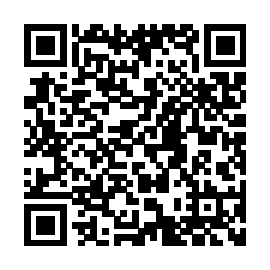讲座:Erasure and Writing
Erasure and Writing
The Linguistics Program of the Department of English, School of Foreign Languages presents
Erasure and Writing
Huang Guowen
School of Foreign Languages
Sun Yat-sen University
Date: Thursday 13th October, 2016
Time: 4:00-5:30 pm
Place: Room 210, School of Foreign Languages
Abstract
As Halliday (1994: 106) argues, "Language enables human beings to build a mental picture of reality, to make sense of what goes on around them and inside them." Our construal of experience is affected by a number of factors and thus the same situation in reality can be represented by different process types with explicit or implicit participants and circumstances in terms of Transitivity (Halliday 1994). Erasure is a concept that is widely used in many different contexts in social science (e.g. Frohmann 1992, Namaste 2000, Barnet 2003, Ferber 2007, Baker & Ellece 2011, Stibbe 2014, 2015). The concept of erasure used in this paper refers to "the absence of something important -- something that is present in reality but is overlooked or deliberately ignored in a particular discourse" (Stibbe 2014), and the focus of discussion is on how and why the writer does the erasure. The paper will look at the impact language has on our representation of reality and illustrate how people erase something that is important in the process of construing experience, and this will be followed by the investigation of motivations (conscious) and reasons (conscious and unconscious) behind the erasure. Finally, the paper will discuss the implications for the teaching of EFL and ESP writing from the perspective of erasure in the construal of experience.
References
Baker, P. and Ellece, S. (2011) Key Terms in Discourse Analysis. London: Continuum.
Barnet, B. (2003) The Erasure of Technology in Cultural Critique. Fibreculture 1. http://journal.fibreculture.org/issue1/issue1_barnet.html
Ferber, A. (2007) Whiteness studies and the erasure of gender. Sociology Compass 1:1:265-282
Frohmann, B. (1992) The power of images: a discourse analysis of the cognitive viewpoint. Journal of Documentation 48(4): 365–86.
Halliday, M.A.K. (1994) An Introduction to Functional Grammar (2nd edition). London: Arnold.
Namaste, V. (2000) Invisible Lives: The Erasure of Transsexual and Transgendered People. Chicago: The University of Chicago Press
Stibbe, A. (2014) Ecolinguistics and Erasure: restoring the natural world to consciousness, in Chris Hart and Piotr Cap (eds) Contemporary Critical Discourse Studies. London: Bloomsbury Academic, pp. 583–602
Stibbe, A. (2015) Ecolinguistics: Language, ecology and the stories we live by. London: Routledge.
Bio-sketch: HUANG Guowen
Professor HUANG Guowen is a Chair Professor of the Changiang Programme selected by the Ministry of Education of P.R. China. He has been a professor of Functional Linguistics since 1996 at Sun Yat-sen University, P.R. China. He was educated in Britain and received two PhD degrees from two British universities (1992: Applied Linguistics, Edinburgh; 1996, Functional Linguistics, Cardiff). He was a Fulbright Scholar in 2004-2005 at Stanford University. He serves as Editor-in-chief of the Journal Foreign Languages in China (bimonthly) published by the Higher Education Press, China. He publishes extensively both in China and abroad and serves/served as an editorial/advisory committee member for several journals, including Linguistics and the Human Sciences (Equinox), Journal of Applied Linguistics (Equinox), and Social Semiotics (Carfax). He is also a member of the Editorial Board of the Monograph Series Discussions in Functional Approaches to Language (Equinox). His research interests include Systemic Functional Linguistics, Ecolinguistics, Discourse Analysis, Applied Linguistics and Translation Studies.

